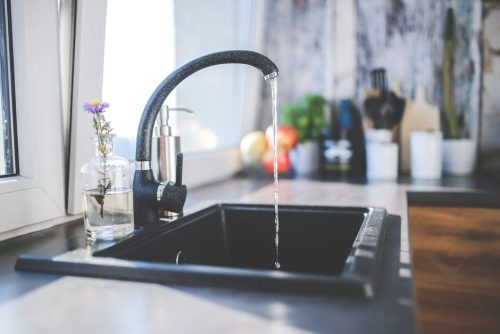Irish Water have been fined €6,000 after a delay in improving the quality of drinking water and for failing to reduce the levels of an environmental pollutant linked to cancer in a timely manner.
Irish Water pled guilty at Dublin District Court on Wednesday to two sample counts after being prosecuted by the Environmental Protection Agency (EPA) for breaking the European Union (Drinking Water) Regulations 2014.
Six Donegal water treatment plants, that provided thousands of people with drinking water, required remedial action. These were located at: Cashelard, Fintown, Greencastle, Gortahork-Falcarragh, Narin-Portnoo, and Rathmullan.
The Irish Independent reports that the court heard drinking water from the treatment plants had been found to have excessive levels of THMs (trihalomethanes), a bi-product of chlorination to disinfect ground water which makes its way into the supply; which can have possible carcinogenic effects if consumed over long periods of time.
EPA inspector Derval Devaney said that the limit for THMs is 100mg per litre, but ten years ago it had been 150mg per litre. This was lowered following advice from the World Health Organisation, which suggested a possible link between THMs and cancer.
The Cashelard treatment plant’s average THM reading was 200mg per litre – but had at times, been recorded at over 400mg per litre.
Devaney also criticised Irish Water for not setting up an interim mobile treatment plant at Cashelard while waiting for a licence to upgrade the permanent plant. The plans for upgrade were approved by the EPA in January 2015, with works having to be completed within two years.
The Fintown plant, which had an average reading of 200mg per litre of THM, was planned to be de-commissioned, with the water being piped from another supply. As of the February 2017 deadline, just 80% of the pipeline had been completed.
The construction of a 7km pipeline and a 1,000 cubic metre reservoir at the Greencastle plant is not expected to be finished until the end of 2018, despite the February 2017 deadline.
At Gortahork-Falcarragh’s plant, they were given until October 31 to reduce the THM levels. Although they missed the deadline, they hope it will be finished in June.
Just 500 metres of a 4km pipeline to be constructed in Narin-Portnoo was completed by the February 2017 deadline, although it was finished months later.
The Rathmullan facility was to be replaced in the long-term by being connected to Letterkenny. However, Irish Water were supposed to, as an interim measure, connect Rathmullan to the Milford supply system which was compliant for THM levels. The deadline was Feb. 28 last year and that was not done until October. A mobile treatment plant had been put in place during the 10-week drought last summer, she said.
Ms Devaney agreed that there had been no health risks caused and that Irish Water had been co-operative.
Mr Cole asked the court to note that by 2021 Irish Water will have spent €100m on upgrades in Donegal.
Judge Brennan noted the problems had existed before Irish Water had been created and when Donegal County Council was responsible it had begun planning remedial work. He accepted that Irish Water had to review those measures when it took over the operation of the water network.
He also remarked that the public perception of the possible carcinogenic effect was a very serious issue which would give worry to the ordinary consumer.
He accepted that there was no mala fides on behalf of Irish Water and that mobile treatment units which had been used in Rathmullan with success were site specific and could not have been used at all the other locations. He accepted there was some delay in implementing actions plans but that they did take action.
Tags:







